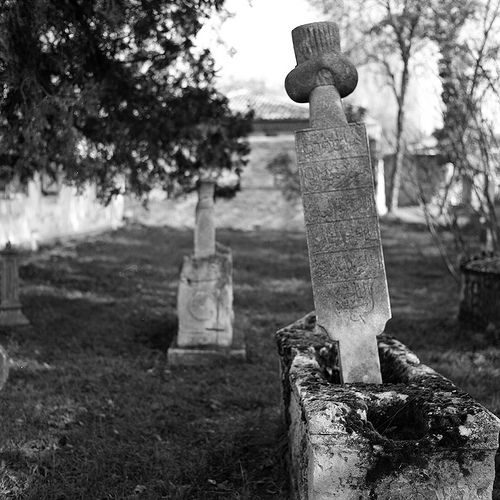My family returned to Crimea in 2005.
I cannot say that my family’s life in
Uzbekistan was unbearable and the
reason for our decision to return to
Crimea. My family did not face any major
social or economic diffi culties there. My
parents had jobs; I had the opportunity
to get a higher education. We Crimean
Tatars survived as a nation after our
deportation partly because we lived
among Uzbeks; their hospitality and
friendship gave us much support during
our fi rst years living in exile. I have great
sympathy for the Uzbek people and am
very thankful to them and their nation.
Nevertheless, my grandparents had
always dreamed of returning to Crimea.
I was brought up in an atmosphere
of constant reminiscences of our
Motherland— the expression “to live like
a native among aliens” speaks for itself.
Upon our return, my family encountered
problems of social reintegration.
Housing has been one of the fi rst and
foremost obstacles for our family— and
most of the Crimean Tatar returnees.
Our family of four lives in a 20 square
meter room within a dormitory with poor
facilities. Even though my father took
part, as a volunteer, in the management
of environmental consequences of the
nuclear disaster in Chernobyl in 1986,
a service that is supposed to qualify him
for free government housing, nothing
has been granted to him. Our application
for land has also been refused without
any explanation, thus denying us the
opportunity to build a house.
As Crimean Tatars do not have the
legal right to reclaim the property
they lost after their deportation, many
returnees have resorted to seizing land
by organizing themselves into groups of
200 people or more. The issue of land
was once coordinated by the Mejlis,
the Representative body of Crimean
Tatars, which played an intermediary
role between local authorities and
Crimean Tatars to advocate for land
transfers in a diplomatic way. The Mejlis
once had the authority and infl uence to
coordinate such matters but that power
has, to some degree, been slipping. The
consequences may be devastating. The
lack of coordination undermines the
unity of the Crimean Tatars and risks
bringing a delicate situation to a head.
After housing, the issue of citizenship is
the biggest issue every Crimean Tatar
family has to resolve upon their return
to Ukraine. The absence of citizenship
deprives people of basic political,
economic, and social rights. In 1998,
an agreement unique in international
relations was reached between
Uzbekistan and Ukraine that would
simplify the procedure of acquiring
Ukrainian citizenship for Crimean
Tatar returnees. However, it takes the
government 5 to 6 months to process
the citizenship applications. During this
waiting period— with no legal status—
the returnees cannot earn their living or
benefit from social security schemes.
The return of Crimean Tatars, a Muslim
people, has also resulted in increased
ethnic and religious tensions. There
has been an increase in attacks against
Crimean Tatars and their properties.
Perhaps most disturbing is that, in
2008, almost 300 gravestones were
demolished in the Nijnegorsk region,
while another 40 were destroyed in
Chistenkoe accompanied by graffiti,
written in Russian, that read: “Tatars,
leave Crimea now!”
There are more than 100,000 Crimean
Tatars still living in Uzbekistan. They
hesitate to return to Crimea due to the
social and economic obstacles faced
by those who do. A reverse trend of
self-exile is occurring in which Crimean
Tatar families— having been unable to
integrate into Ukrainian society— are
moving back to Uzbekistan.
Ali Chabuk is a Masters candidate at
Milano Graduate School of Management
and Urban Policy at the New School
University. He is a 2008-2010 Fulbright
Grantee from Ukraine.
 Log in
Log in









